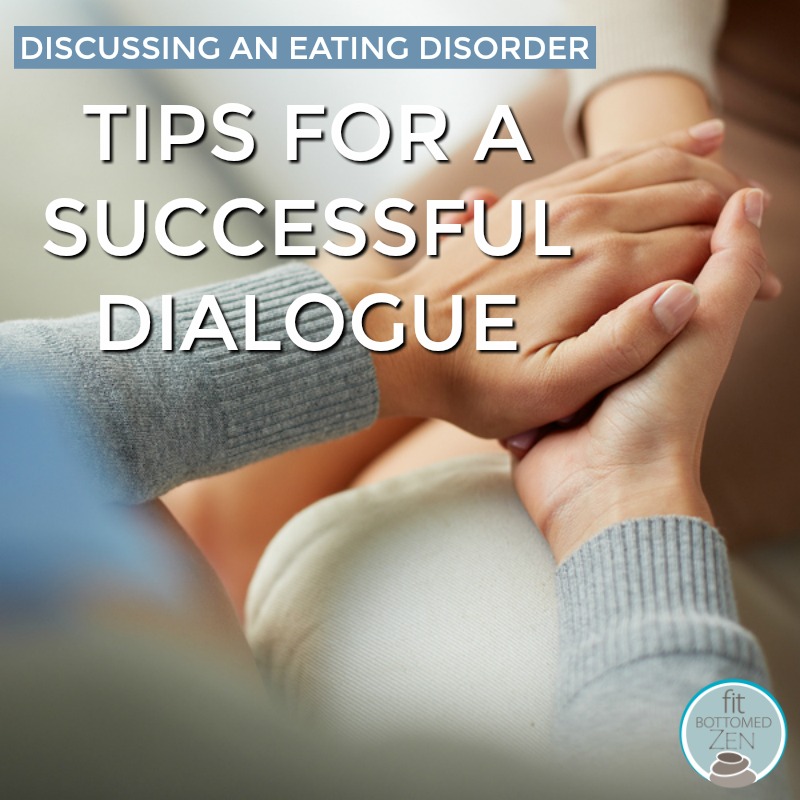Discussing an Eating Disorder: Tips for a Successful Dialogue

Here’s a scary and rarely discussed stat: eating disorders have the highest mortality rate of any mental illness and suicide rates are 23 percent higher in those with eating disorders than in the general population. In addition, for those with eating disorders, rates of death are elevated compared to those suffering from other mental health disorders such as depression, bipolar disorder and schizophrenia.
Because this topic is so important — and alarmingly, on the rise — we reached out to Jamie Manwaring, primary therapist at Eating Recovery Center in Denver, for her tips on how to talk to a loved one who’s suffering from an eating disorder.
How to Create an Encouraging Dialogue with Loved Ones Suffering From an Eating Disorder
1. Find a time and place. It is too easy to avoid difficult conversations. Find a private space and a time when they are calm and you aren’t rushed. Being side by side (e.g., taking a stroll, going for a car ride) may make it easier for them to share their feelings than being face to face.
2. Be honest, kind, and stick to the facts. Don’t assume what they’re going through or what they’re doing when you’re not with them. Stick to “I” statements around what you’ve observed and why you’re concerned (e.g., “I’ve seen your mood shift anytime I ask you to dinner;” “I’m worried about how you’re isolating yourself more, and don’t want to go out with friends.”).
3. Focus on the person, not the body. Eating disorders are tricky – there may be both pride and shame wrapped up in their weight fluctuations. Stay away from how their appearance may have changed, and instead focus on their emotions and behaviors that are concerning.
4. Validate, validate, validate! Even if they get defensive or angry (very possible), validate the emotions you have observed in them or currently observe (e.g., “I can imagine how lonely it would feel to think you’re struggling on your own;” “It makes sense why you’re angry at me for talking to you about this”).
5. Provide options. It would be understandable and normal if they don’t want to talk to you about everything, or you feel ill-equipped to support them. Come to the conversation with ideas of therapists, or if this feels too daunting, websites such as nationaleatingdisorders.org.
6. Confirm your unwavering support. Let them know that you are around as a listening ear, a ride to therapy, as a person to hold them accountable … whatever it is that they need at that moment.
Are you or is someone you know showing signs of an eating disorder? For additional information about Eating Recovery Center, call 877-789-5758, email info@eatingrecoverycenter.com, or visit eatingrecoverycenter.com to speak with a Masters-level clinician. The National Eating Disorders Association also has a free hotline that you can call here. —Jenn
